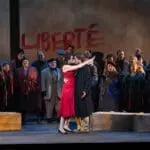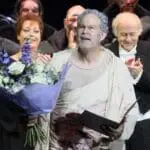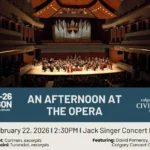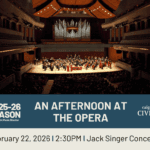Edmonton Opera’s Artistic Director Joel Ivany continues his eclectic approach to opera company programming. After a traditional production of Carmen in the fall and a semi-staged Don Giovanni at the beginning of February, both at their mainstay 2,400-seat Jubilee Auditorium, Edmonton Opera moved on April 10 to a more intimate 400-seat downtown venue for the first of three evenings of music and song by Argentinian composer Osvaldo Golijov.
With the exception of one elegiac piece by Puccini, Crisantemi for string quartet, the musical side of the program was devoted to Golijov. Dubbed a Journey, the opening half featured soprano McKenzie Warriner. She began with a recitation of the Khalil Gibran poem On Children, an expansive view of children’s place in the larger human family, followed by another poem, A Tear and a Smile, which set the sombre, reverential tone of the Golijov selections to follow.
Warriner gave a perfectly unaffected, at times hypnotic, performance of music tinged with sadness, sorrow even, often introspectively melismatic, pure emotion without any textual mediation. Where there were words, there were few. For How Slow the Wind, originally for soprano and orchestra, Warriner was accompanied by a string quartet drawn from the city’s best string players, including the Edmonton Symphony’s concertmaster, Robert Uchida. The unadorned lyric, intoned with a mix of wonder and prosaic observation, was grounded in a vocal style that clearly underscored the singer’s appreciation of comforting breeze.
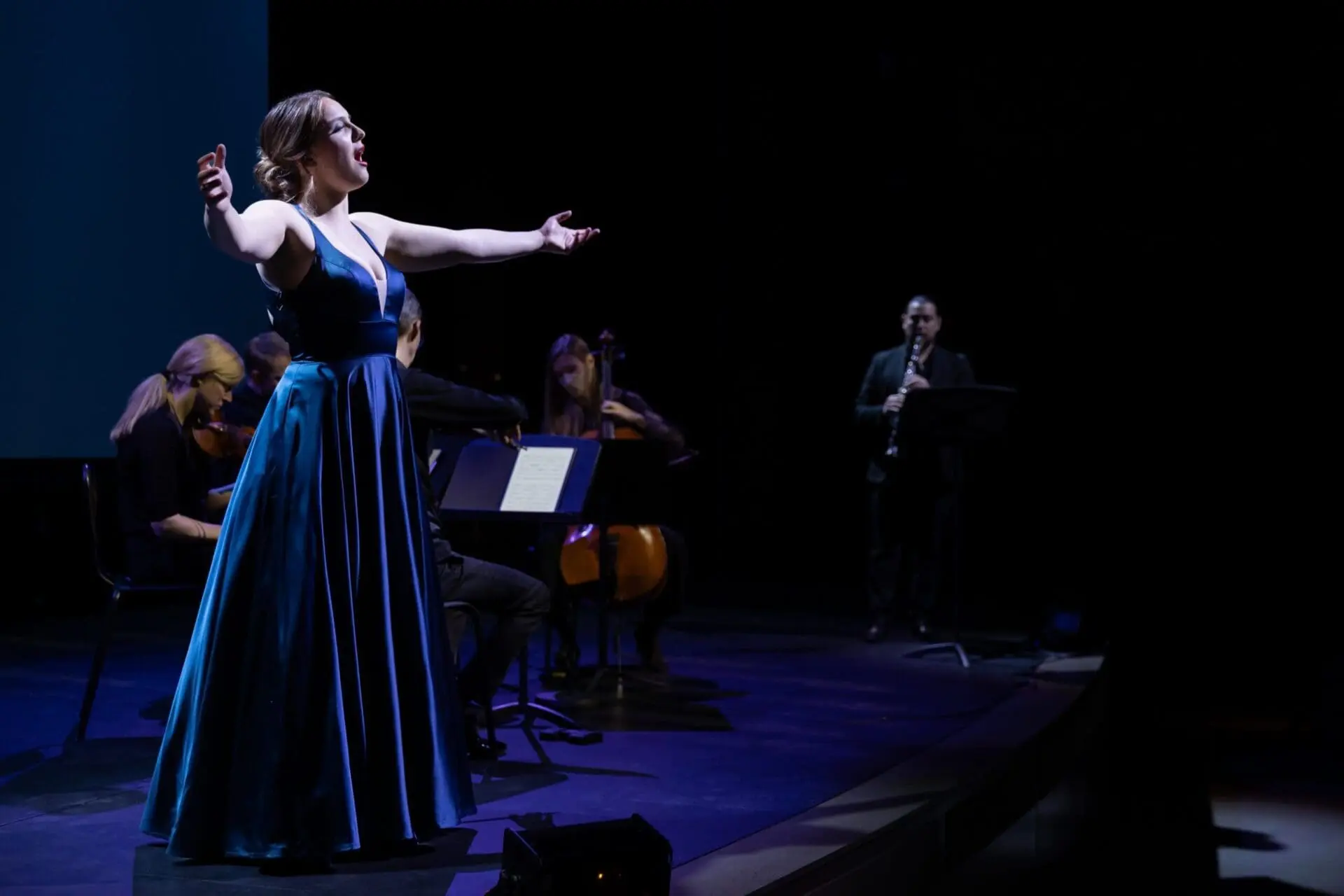
McKenzie Warriner
Photo Credit: Curtesy of Edmonton Opera
The longest piece of the half was 12-minute Tenebrae, arranged for soprano string quartet, and clarinet (Juan Gabriel Olivares). Tenebrae is Latin for darkness, but it is also the name of a Christian pre-Easter period of lamentation in advance of the celebration of Christ’s resurrection. Golijov has explained his aim for the piece this way:
“I wrote Tenebrae as a consequence of witnessing two contrasting realities in a short period of time in September 2000. I was in Israel at the start of the new wave of violence that is still continuing today, and a week later I took my son to the new planetarium in New York, where we could see the Earth as a beautiful blue dot in space. I wanted to write a piece that could be listened to from different perspectives. That is, if one chooses to listen to it ‘from afar,’ the music would probably offer a ‘beautiful’ surface but, from a metaphorically closer distance, one could hear that, beneath that surface, the music is full of pain.”
The soprano mainly sings an ethereal vocalese as the quartet evokes a range of feelings. An ostinato background colours long lines that morph intermittently into moments of unease, verging on harshness. The piece ends with the soprano singing “Jerusalem,” the only word she sings. Warriner captured the “surface” feeling Golijov refers to beautifully, and in the resolution, her soaring, penetrating, unhurried, clarion invocation of the Jewish religious centre, left the room in attentive silence, and then exuberant ovation. Warriner was the opening act, but she delivered a featured artist’s performance with poise and great musical aplomb.
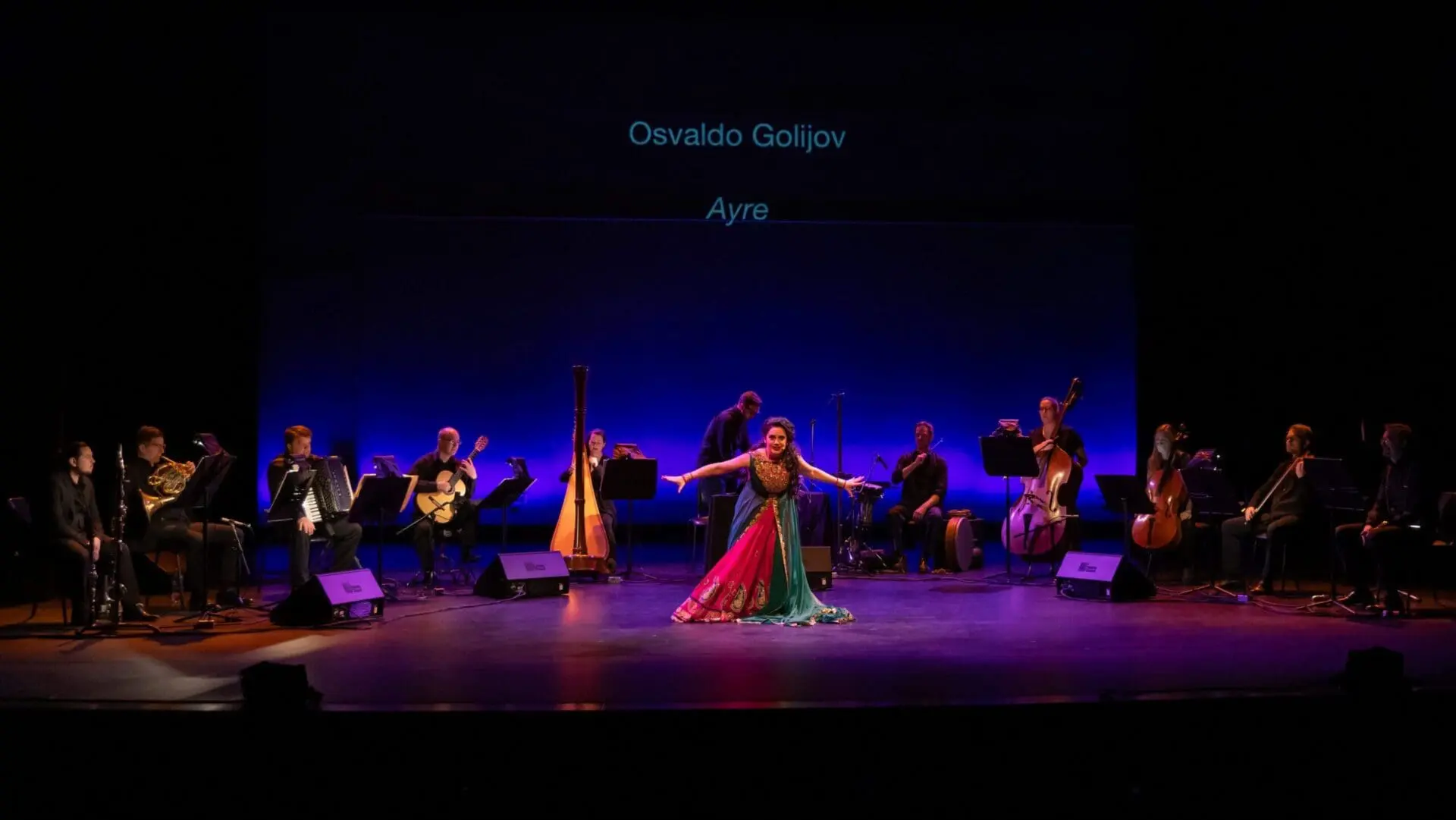
Miriam Khalil and members of Ensemble
Photo Credit: Curtesy of Edmonton Opera
The second half featured the song cycle Ayre, sung by soprano Miriam Khalil. Ivany and Kahlil’s former company, Toronto’s Against the Grain Theatre, released a live recording of the work in 2018, which garnered a Juno nomination.
Ayre has helped establish Khalil’s reputation as one of Canada’s go-to operatic singers, although Ayre is not at all opera. It is an assortment of music and songs from various Middle Eastern folk cultures, including Sephardic, Sardinian, Arabic and Jewish traditions.
She began singing Ayre at Banff Centre in 2016, guided by Goljiov, himself. The original 2004 recording featured Dawn Upshaw, but Golijov has said of Khalil, whose family is Syrian Christian, that she deepens the intent of some of the songs because “she [has spoken] Arabic from her childhood [which] makes the Arabic sound very true.”
Although Khalil is trained in opera, these songs do not come from the European art music tradition. These songs and the music, performed by a ten-piece band capable to producing driving Klezmer vivacity, sonorous modal melodies, and occasional elemental electronica, displayed a diverse range of styles and sentiment, and Khalil delivered much more than a uniquely flavoured recital program. She embodied the characters Ayre conjures. She knows this piece well enough to live it in front her audiences with a true performer’s flair, and an evident feel for the compositional origins. In fact, two of the Arabic songs in the eleven-piece cycle she has known since childhood.
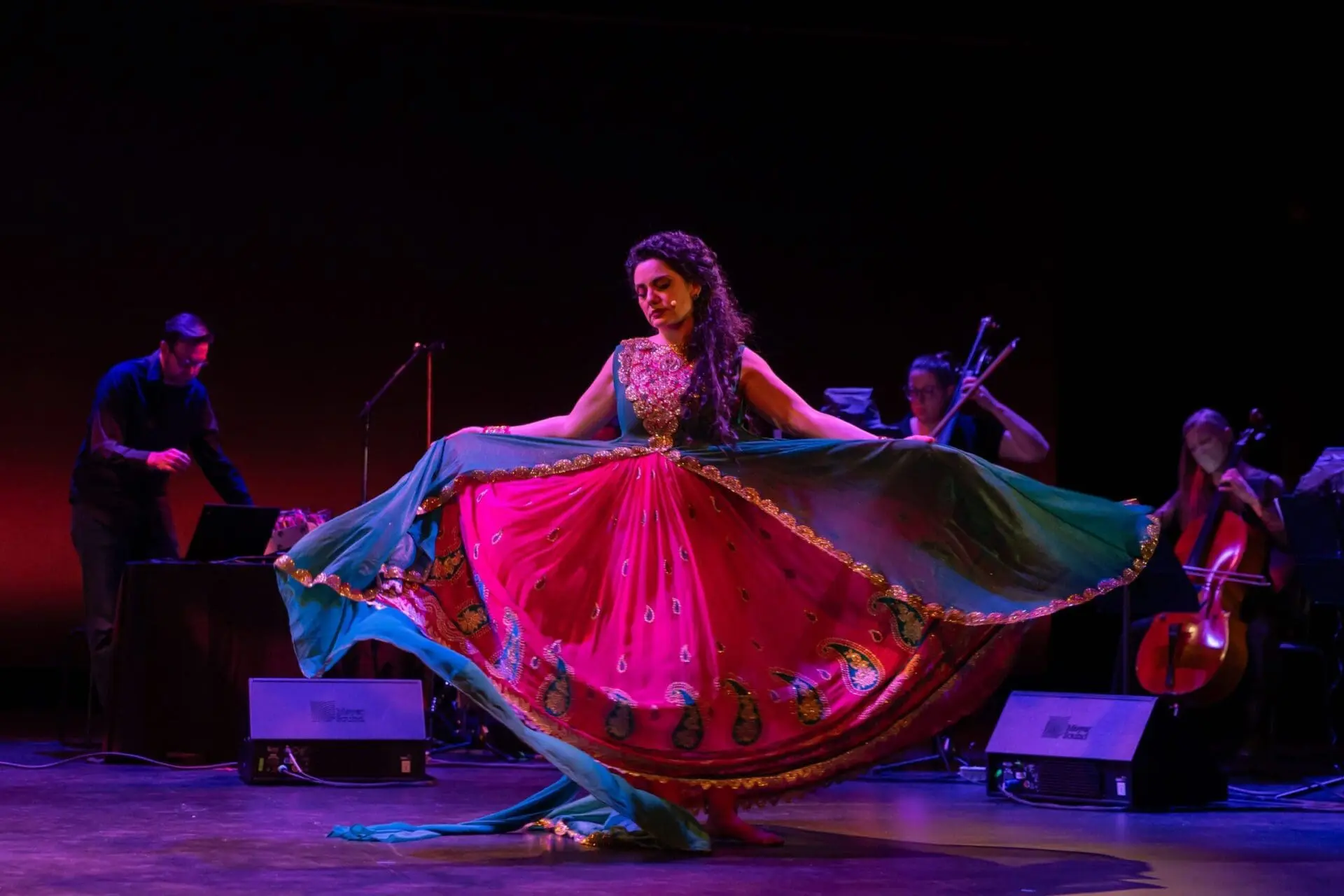
One of them, “Wa Habbi (My Love)”, she rendered with a rich, plaintive beauty. But with the propulsive “Tancas serradas a muru (Walls are Encircling the Land)” she generated a genuinely unoperatic sensation—visceral, shill, nasally, ferocious, gripping. Her sound verged on ugly, and the singer delivered her militaristic threats with intense theatrical force.
“Y Una Madre Comío Aasado (A Mother Roasted Her Child)” weirdly voices an unfortunate, compliant son’s reminder to his mother that he was a good, dutiful child. We don’t learn why she ate him. The music, though, is sweetly melodic, despite the macabre message of lyric, and Kahlil sang the short monologue with no creepy overtones.
Edmonton Opera gave three successive performances of Ayre, the title of the show, and expected the last two to be sold out. This interlude from regular opera programming, as it were, was wonderfully coherent, and a focus on the contemporary work of a living composer, met Ivany’s aim to revitalize the musical art from a variety of angles, besides showcasing his very talented spouse.
Related Content ↘
Opera Canada depends on the generous contributions of its supporters to bring readers outstanding, in-depth coverage of opera in Canada and beyond. Please consider subscribing or donating today.


